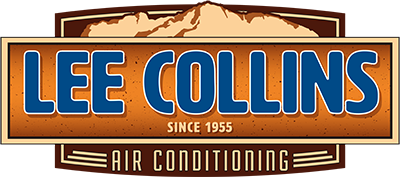Choosing the Right Air Conditioning System for Your Needs:
A Comprehensive Guide
Understanding Your Climate
The climate in your area plays a significant role in determining the type of air conditioning system best suited for your needs. Generally, climates can be categorized into three groups:
- Hot and humid: In hot and humid climates, an air conditioner with a high cooling capacity and effective dehumidification is essential. Consider systems with variable-speed compressors, which can more effectively manage humidity levels and maintain consistent temperatures.
- Hot and dry: In hot and dry climates, energy efficiency is paramount to reduce high electricity costs. Look for systems with high Seasonal Energy Efficiency Ratio (SEER) ratings and Energy Star certification.
- Temperate: In areas with mild summers and cooler winters, consider a heat pump system. Heat pumps can provide both heating and cooling, making them an energy-efficient and cost-effective solution for year-round comfort.
Assessing Your Home Size
Before selecting an air conditioning system, it’s crucial to determine the appropriate size of the unit to meet your home’s cooling needs. Undersized units will struggle to cool your space and may lead to increased energy bills, while oversized units may cycle on and off too frequently, decreasing energy efficiency and causing excess wear on the system.
To determine the right size, consult a professional HVAC contractor to conduct a load calculation. This process takes into account your home’s square footage, insulation levels, window type, and other factors to determine the proper cooling capacity for your space.
Energy Efficiency
Energy efficiency should be a top priority when selecting an air conditioning system. The higher the efficiency, the less energy the unit will consume to cool your space, resulting in lower utility bills and a reduced carbon footprint.
When comparing AC units, consider the following efficiency ratings:
- Seasonal Energy Efficiency Ratio (SEER): A higher SEER rating indicates a more efficient air conditioner. A minimum rating of 14 SEER is required for new units, but models with ratings of 20 SEER or higher are considered highly efficient.
- Energy Efficiency Ratio (EER): This rating measures the cooling efficiency of a unit at a specific outdoor temperature (usually 95°F). Look for units with higher EER ratings for better efficiency.
- Energy Star Certification: Products with this certification meet strict energy efficiency guidelines set by the U.S. Environmental Protection Agency. Choosing an Energy Star-certified air conditioner can save you money on your energy bills.
ROUTINE AIR CONDITIONER MAINTENANCE IN PHOENIX INCLUDES
- Checking air filters
- Checking electrical amp pulls
- Checking evaporation and condenser coils for cleanliness
- Checking temperature splits
- Checking electrical connections for weak wire connections
- Checking freon levels
Types of Air Conditioning Systems
There are several types of air conditioning systems to choose from, including:
- Central air conditioning: A popular choice for whole-home cooling, central air conditioning systems consist of an outdoor compressor and an indoor air handler. These systems require ductwork to distribute cooled air throughout your home.
- Ductless mini-split systems: These systems consist of an outdoor compressor and one or more indoor air handlers. They don’t require ductwork, making them a great option for homes without existing ducts or for room-specific cooling needs.
- Window or wall-mounted units: Ideal for small spaces or single rooms, these units are mounted in a window or through an exterior wall. They are generally less energy-efficient than central air conditioning or ductless systems.
- Portable air conditioners: These units can be moved from room to room and require a window for exhaust. They are typically less efficient than other options but can provide temporary or supplemental cooling.
Maintenance & Installation - We are here to help!
You can trust Lee Collins Air Conditioning to quickly repair your air conditioner with new replacement ac parts and keep your home comfortable 24/7. Our technicians have been with us for over 25 years and have amassed over 60 years of experience in air conditioning.
Have questions? We have answers! Give us a call directly at 602-805-1348 or schedule an introductory service call by clicking the button below.
